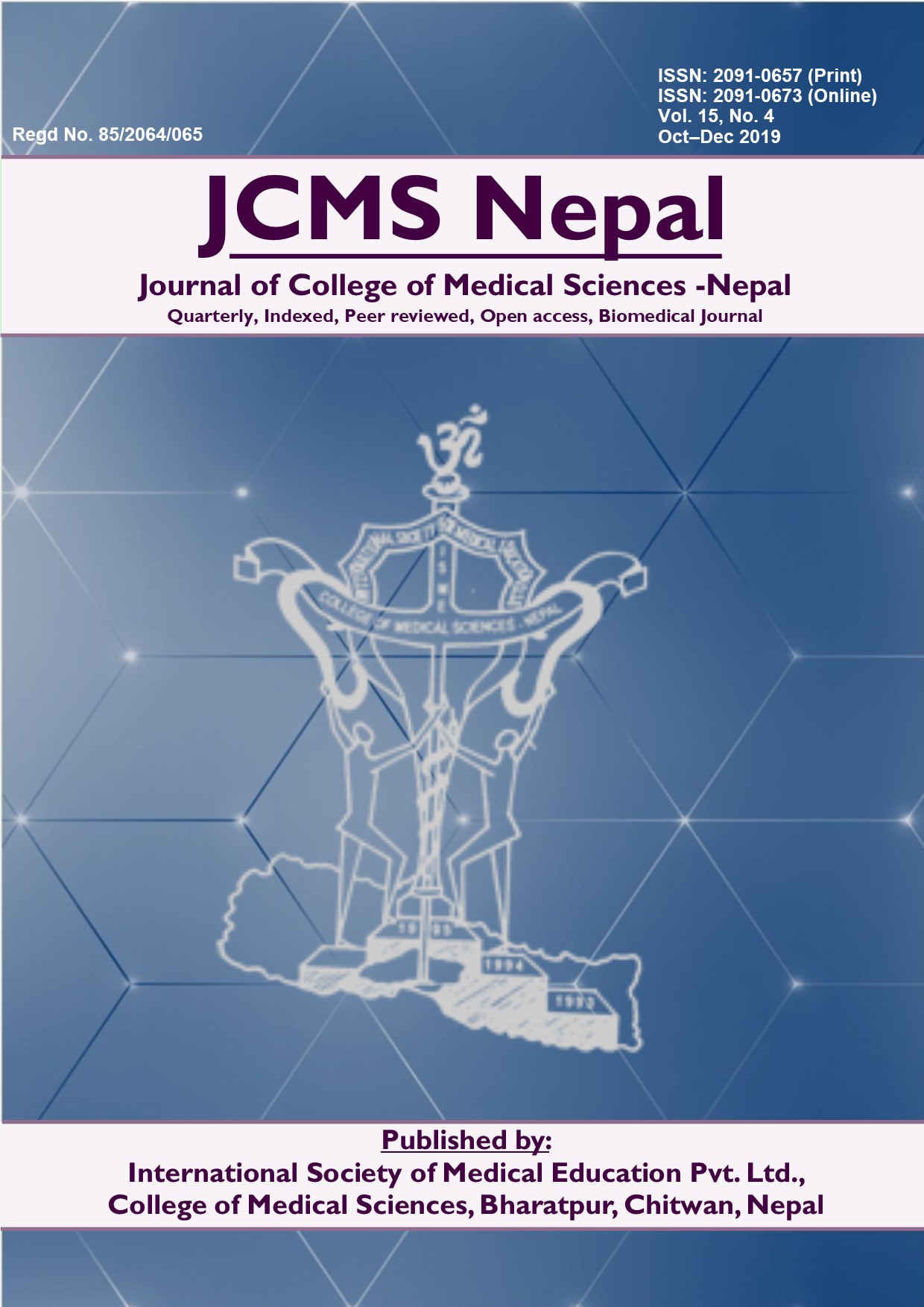Use of Sodium Tetradecyl Sulphate for Treatment of Oral Lesions
DOI:
https://doi.org/10.3126/jcmsn.v15i4.26206Keywords:
Lymphangioma, mucocele, pyogenic granuloma, sclerotherapy, sodium tetradecyl sulfate, vascular malformationAbstract
Background: Sclerotherapy is defined as the “targeted elimination of small vessels, varicose veins and vascular anomalies by the injection of a sclerosant. This study aimed to analyze the effect of a sclerosing agent 3% Sodium tetradecyl sulfate (STS) on different oral lesions and to evaluate whether sclerotherapy can be a potent alternative to other treatment modalities.
Methods: A descriptive study was done in the Department of Oral Medicine and Radiology and the Department of Oral and Maxillofacial Surgery, Nobel Medical College Teaching Hospital, Biratnagar between September 2016 and June 2019.
Results: A Total of 46 patients treated by 3%STS were retrospectively identified. After exclusion, 38 patients were selected for the study. Out of 38 patients 9 belonged to vascular malformation group, 15 to pyogenic granuloma group, 2 to lymphangioma group, 8 to mucocele group and 4 to ranula group. 25 patients (65.79%) showed complete response, 4 patients (10.53%) showed good response, 3 patients (7.89%) showed moderate response, 2 patients (5.26%) showed mild response and 4 patients (10.53%) showed no response.
Conclusions: Sclerotherapy with sodium tetradecyl sulfate 3% is effective in the treatment of different oral lesions such as vascular malformations, pyogenic granuloma, lymphangioma, and mucocele.
Downloads
Downloads
Published
How to Cite
Issue
Section
License
This license enables reusers to copy and distribute the material in any medium or format in unadapted form only, for noncommercial purposes only, and only so long as attribution is given to the creator.




